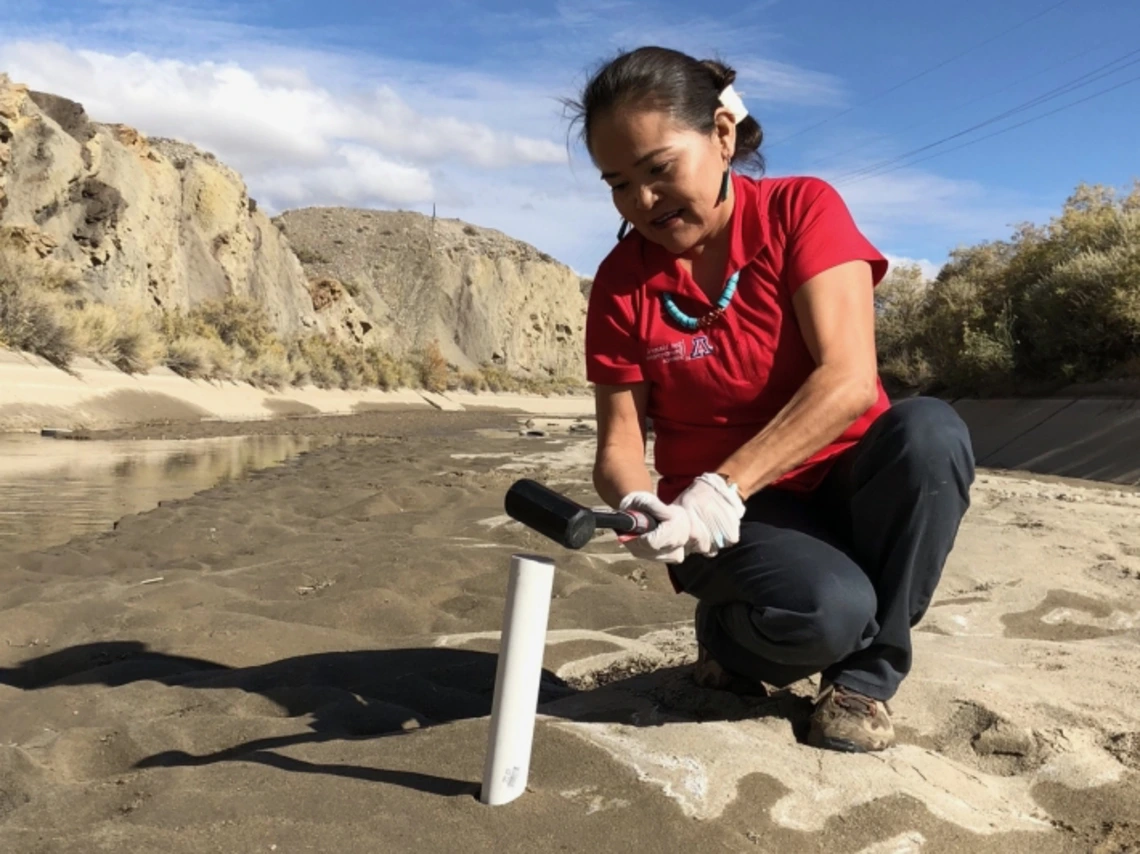President Robbins announces the creation of a new Indigenous Resilience Center

Dr. Karletta Chief, Indigenous Resilience Center Director at the UArizona Arizona Institute for Resilient Environments and Societies, pounds a soil sample tube into the Hogback irrigation canal near Waterflow, New Mexico, on the Navajo Nation in 2017.
Courtesy of Dr. Karletta Chief
Yesterday, President Robbins announced the creation of the AIR/Haury Indigenous Resilience Center (IRC), an interdisciplinary center that will advance tribal communities’ resilience goals and respond to environmental challenges. Committed to respecting Native Nations' sovereignty and traditional knowledge, UArizona will consult with tribal leaders to develop the center. The IRC will be part of the Arizona Institutes for Resilience (AIR) and will be led by Dr. Karletta Chief. Read the announcement.
The IRC will conduct community-driven, place-based tribal research, engage in outreach to tribal communities, and teach Indigenous resilience and Knowledge and Native science. It also will be a hub for campus collaboration and its faculty will mentor Native and Indigenous undergraduate and graduate STEM students. The outreach work will expand the impact of UArizona’s tribal extension agents and Indian Cooperative Extension.
The timing of the new Center is superb, and UArizona is the right place for this work.
UArizona is already known for its exceptional work in water, climate change, drought, resilience, and Native and Indigenous education and research. Indeed, no other university has this combination of superb people and programs devoted to these ends. UArizona also is the state’s only land grant University: outreach that addresses community needs is core to our identity. And we understand that effective community impact requires community-driven solutions and respectful tribal engagement.
The current moment is one of unparalleled resilience perils that have had major adverse impacts for Native and Indigenous communities. The lack of clean water access for many homes across the Navajo Nation –to take one powerful example– exacerbated the impact of the pandemic there. The need for clean water access, among other resilience issues facing the tribes in a time of drought and climate change, will not end with the pandemic.
UArizona can and must work together to become an even stronger and more effective place for tribal resilience education, research, and outreach. The IRC will leverage our expertise in service of these goals, allow for greater collaboration across disciplines and programs, and help assure that our work is led by, and responsive to Native and Indigenous leadership, governance, and traditions.
Toni Massaro
Haury Program Executive Director
